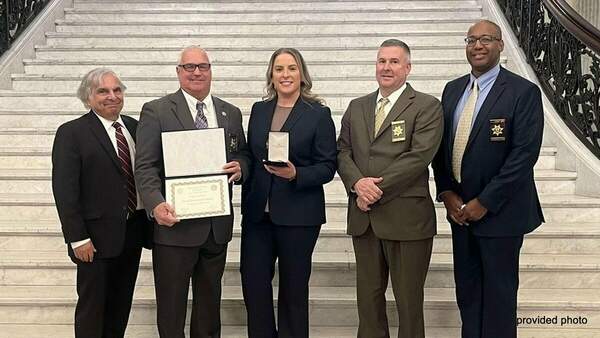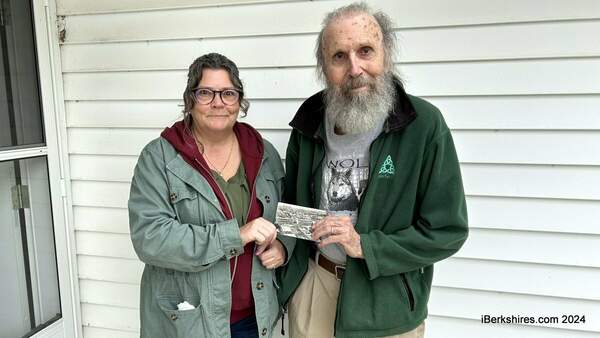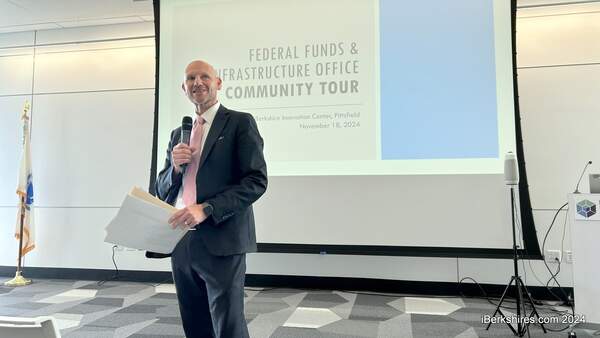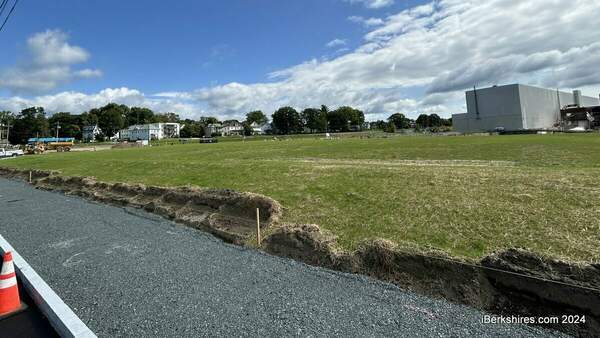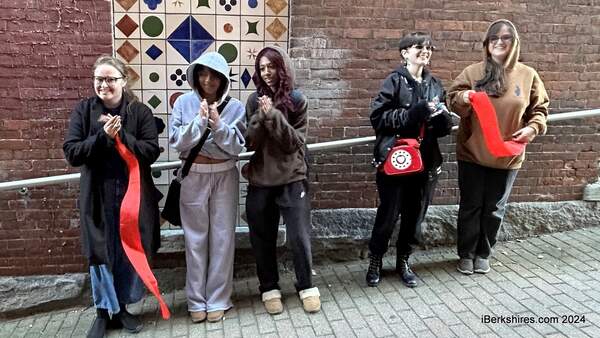
Pittsfield Historical Commission OKs Two Multifamily Demos
PITTSFIELD, Mass. — The Historical Commission on Monday approved the demolition of two multi-family properties: 18-41 Cherry St. and 42 Gilbert St.
The more than 100-year-old Cherry Street property sustained serious damage from a neighboring fire that destroyed a 12-unit home last year.
From the street, the left side is clearly charred and the windows are boarded up. The subject of the fire, located on the corner of Lincoln and Cherry streets, was demolished under an emergency order from the city building inspector.
"We're looking to remove this and clean up the site," Mark Scoco said on behalf of AWC Construction, LLC.
He reported that there has been discussion about constructing new building on the parcel but there are no concrete plans. It is currently owned by TJLR Onota LLC and will be bought by a new party.
"I drove by it, it's a mess," Commissioner Ann-Marie Harris said.
Chair John Dickson agreed that the property is "a mess."
"I also drove by I don't see anything uniquely architectural either," he added.
The property is a four-family, wood-frame home that was built in 1909 by Rice Brothers Construction and originally owned by Francis McMahon.
A profile by The Home Historian Joe Durwin reports that 15 occupants were displaced by a fire in 1991 that began in a second-floor rear porch, causing fire damage to the second floor and extensive smoke and water damage to the rest.
By the early '90s, the vicinity of Cherry Street and Lincoln Street's crossing had seen a great deal of misfortune.
Durwin said the area had seen multiple serious fires, vehicular deaths, large-scale drug raids, and at least two homicides at the intersection over the prior 50 years.
Committee members complimented the report for thoroughly documenting the property's origins and previous owners.
The Gilbert Street property is owned by Side By Side assisted living, which expected to renovate it but found it to be in worse condition than expected. The front is secured by a fence with a danger sign.
"We were planning to and we've done some city approval prior with (former permitting coordinator Nate Joyner) to convert that building into eight assisted-living units," contractor Dave Reardon said.
"During some of the demo though, the foundation was severely damaged and the building is compromised. We had our structural engineer assess it, put together what he thought, and as we reviewed what it would take to repair and save it versus the cost to just build a new building, it just made more sense to request to tear down and look to build something new."
He explained that with some old fieldstone foundations you "never know what you are going to get" and in this situation, it did not turn out well.
"That whole corner of that building has compromised and there's just probably no good way to put it back the way it was because it is an old fieldstone foundation," Reardon said, adding that they could probably install new walls formed with concrete or some other support but it would never be the same.
"It was unfortunate but we'll roll with the punches, do what we've got to do," he said.
The assisted living facility owns a number of properties in the area. Currently, it plans to construct another building on that lot but hasn't determined the scope of the project.
Lisa Sawyer put together a research report for the application. Committee members found it interesting that the prominent West family had ties to the street and that it was formerly all farmland.
In other news, it was announced that the city hired a new city planner after CJ Hoss took a position with the Berkshire Regional Planning Commission late last year.
The person was not named but it was reported that she will start in a couple of weeks.
Tags: demolition, historical commission,

